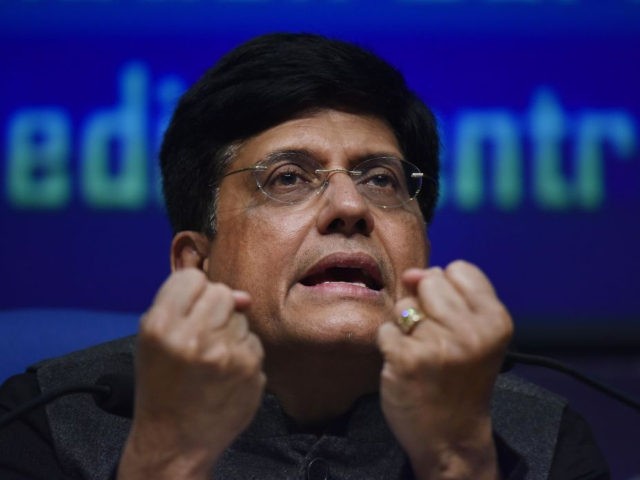India’s commerce minister, Piyush Goyal, complained this weekend that “arrogant” American e-commerce giants are flouting his country’s laws.
Goyal did not name any individual companies, but the two biggest e-commerce players in the Indian market are Amazon.com and Wal-Mart, both of which routinely face accusations anti-competitive practices from Indian retailers.
“A number of these large e-commerce companies have come into India and very blatantly flouted the laws of the land in more ways than one. I’ve had several engagements with these large companies, particularly the American ones, and I can see a little bit of arrogance,” Goyal said at a Stanford India Policy and Economics Club virtual event on Saturday night.
Goyal accused the online mega-corporations of failing to comply with an investigation by the Competition Commission of India (CCI), and of “shopping” for agreeable courts when they face lawsuits.
“To my mind, if they have nothing to hide, if they are doing honest business practices, why don’t they respond to the CCI?” he asked.
Goyal was evidently referencing a specific CCI investigation of Amazon and Flipkart, Wal-Mart’s online shopping platform. The probe of anti-competitive practices was launched in January 2020 after complaints that the two big American platforms were using promotional campaigns and deep discounts to crush local Indian competition.
Some Indian entrepreneurs argue foreign e-commerce companies are using the online nature of their operations to bypass local and national regulations that would influence their business practices if they were opening physical retail outlets in India. The Confederation of All India Traders angrily accused foreign corporations of treating India like a “banana republic” in a letter to Prime Minister Narendra Modi last week.
Amazon and Wal-Mart were able to paralyze the investigation with legal challenges until a court decision in early June 2021 got the CCI probe moving again.
CCI is also reportedly targeting Google for a new antitrust investigation based on Google’s use of its Android operating system to dominate the smart TV market in India. Two CCI probes of Google are already in progress.
“The CCI’s plan to move faster on such cases is in line with other antitrust regulators globally that are investigating digital markets like e-commerce and online search, which are dynamic and evolving fast,” an Indian antitrust lawyer told Reuters.
India’s Ministry of Consumer Affairs is currently considering a tighter package of e-commerce laws that would, among other things, ban the practice of limited-time “flash sales” with steep discounts and forbid the affiliates of e-commerce companies from making direct sales to consumers. Indian retailers complain they cannot compete with flash sales, while Amazon has several affiliates that sell products on its e-commerce platform.
Critics of the proposed regulations fear they would hurt Indian consumers and endanger the meteoric growth of e-commerce, a $66 billion industry projected to more than double its value over the next three years. Flash sales, for example, are extremely popular with consumers.
The new regulations would also impose hefty additional costs on e-commerce companies, such as the requirement to hire squads of compliance officers, and a rule that would force online retailers to suggest local alternative products to their customers.
Smaller e-commerce companies fear they would be more severely hindered by these rules and compliance costs than titans like Amazon and Wal-Mart, and less capable of fighting lengthy court battles against unfavorable regulatory actions.

COMMENTS
Please let us know if you're having issues with commenting.